
Fulgencio Batista y Zaldívar was a Cuban military officer and politician who served as the elected president of Cuba from 1940 to 1944 and as its U.S.-backed military dictator from 1952 to 1959, until he was overthrown in the Cuban Revolution.
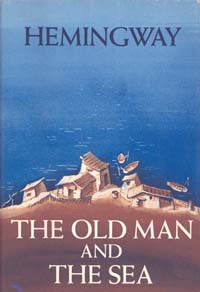
The Old Man and the Sea is a novella written by the American author Ernest Hemingway in 1951 in Cayo Blanco (Cuba), and published in 1952. It was the last major work of fiction written by Hemingway that was published during his lifetime. One of his most famous works, it tells the story of Santiago, an aging Cuban fisherman who struggles with a giant marlin far out in the Gulf Stream off the coast of Cuba.
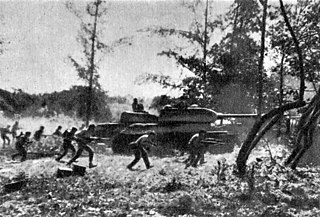
The Bay of Pigs Invasion was a failed military landing operation on the southwestern coast of Cuba in 1961 by Cuban Democratic Revolutionary Front (DRF), consisting of Cuban exiles who opposed Fidel Castro's Cuban Revolution, covertly financed and directed by the U.S. government. The operation took place at the height of the Cold War, and its failure influenced relations between Cuba, the United States, and the Soviet Union.

The Cuban Revolution was a military and political effort to overthrow the government of Cuba between 1953 and 1959. It began after the 1952 Cuban coup d'état which placed Fulgencio Batista as head of state and the failed mass strike in opposition that followed. After failing to contest Batista in court, Fidel Castro organized an armed attack on the Cuban military's Moncada Barracks on July 26th, 1953. The rebels were arrested and while in prison formed the 26th of July Movement. After gaining amnesty the M-26-7 rebels organized an expedition from Mexico on the Granma yacht to invade Cuba. In the following years the M-26-7 rebel army would slowly defeat the Cuban army in the countryside, while its urban wing would engage in sabotage and rebel army recruitment. Over time the originally critical and ambivalent Popular Socialist Party would come to support the 26th of July Movement in late 1958. By the time the rebels were to oust Batista the revolution was being driven by the Popular Socialist Party, 26th of July Movement, and the Directorio Revolucionario Estudiantil.
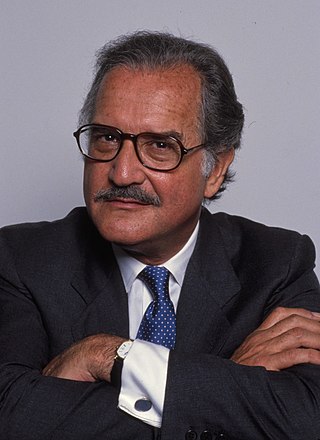
Carlos Fuentes Macías was a Mexican novelist and essayist. Among his works are The Death of Artemio Cruz (1962), Aura (1962), Terra Nostra (1975), The Old Gringo (1985) and Christopher Unborn (1987). In his obituary, The New York Times described Fuentes as "one of the most admired writers in the Spanish-speaking world" and an important influence on the Latin American Boom, the "explosion of Latin American literature in the 1960s and '70s", while The Guardian called him "Mexico's most celebrated novelist". His many literary honors include the Miguel de Cervantes Prize as well as Mexico's highest award, the Belisario Domínguez Medal of Honor (1999). He was often named as a likely candidate for the Nobel Prize in Literature, though he never won.
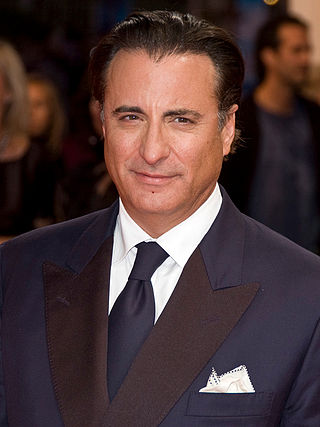
Andrés Arturo García Menéndez, known professionally as Andy García or Andy Garcia, is an American actor, director and musician. He first rose to prominence acting in Brian De Palma's The Untouchables (1987) alongside Kevin Costner, Sean Connery, and Robert De Niro. He continued to act in films such as Stand and Deliver (1988), and Internal Affairs (1990). He then costarred in Francis Ford Coppola's The Godfather Part III (1990) as Vincent Mancini, for which he received an Academy Award nomination for Best Supporting Actor.
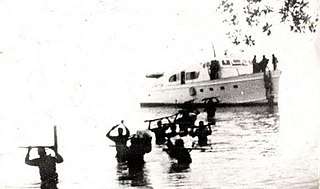
Granma is a yacht that was used to transport 82 fighters of the Cuban Revolution from Mexico to Cuba in November 1956 to overthrow the regime of Fulgencio Batista. The 60-foot diesel-powered vessel was built in 1943 by Wheeler Shipbuilding of Brooklyn, New York, as a light armored target practice boat, US Navy C-1994, and modified postwar to accommodate 12 people. "Granma", in English, is an affectionate term for a grandmother; the yacht is said to have been named for the previous owner's grandmother.
Human rights in Cuba are under the scrutiny of human rights organizations, which accuse the Cuban government of committing systematic human rights abuses against the Cuban people, including arbitrary imprisonment and unfair trials. International human rights organizations such as Amnesty International and Human Rights Watch have drawn attention to the actions of the human rights movement and designated members of it as prisoners of conscience, such as Óscar Elías Biscet. In addition, the International Committee for Democracy in Cuba led by former statesmen Václav Havel of the Czech Republic, José María Aznar of Spain and Patricio Aylwin of Chile was created to support the Cuban dissident movement.
Omega 7 was an anti-Castro Cuban group based in Florida and New York made up of Cuban exiles whose stated goal was to overthrow Fidel Castro. The group had fewer than 20 members. According to the Global Terrorism Database, Omega 7 was responsible for at least 55 known anti-Castro attacks over the span of eight years with a majority of them being bombs. The group also took part in multiple high-profile murders and assassination attempts and has committed four known murders. Among their assassinations was Felix Garcia Rodriguez, a Cuban delegate who was gunned down on the 6th anniversary of the group. The group had conspired to assassinate Fidel Castro during the Cuban leader's visit to the United Nations in 1979.

Juan Almeida Bosque was a Cuban politician and one of the original commanders of the insurgent forces in the Cuban Revolution. After the rebels took power in 1959, he was a prominent figure in the Communist Party of Cuba. At the time of his death, he was a Vice-President of the Cuban Council of State and was its third ranking member. He received several decorations, and national and international awards, including the title of "Hero of the Republic of Cuba" and the Order of Máximo Gómez.

Juana de la Caridad "Juanita" Castro Ruz is a Cuban activist as well as the sister of Fidel and Raúl, both former presidents of Cuba, and Ramón, key figure of the Cuban Revolution. After collaborating with the Central Intelligence Agency in Cuba, she has lived in the United States since 1964.

The Latin American Boom was a literary movement of the 1960s and 1970s when the work of a group of relatively young Latin American novelists became widely circulated in Europe and throughout the world. The Boom is most closely associated with Julio Cortázar of Argentina, Carlos Fuentes of Mexico, Mario Vargas Llosa of Peru, and Gabriel García Márquez of Colombia. Influenced by European and North American Modernism, but also by the Latin American Vanguardia movement, these writers challenged the established conventions of Latin American literature. Their work is experimental and, owing to the political climate of the Latin America of the 1960s, also very political. "It is no exaggeration", critic Gerald Martin writes, "to state that if the Southern continent was known for two things above all others in the 1960s, these were, first and foremost, the Cuban Revolution and its impact both on Latin America and the Third World generally, and secondly, the Boom in Latin American fiction, whose rise and fall coincided with the rise and fall of liberal perceptions of Cuba between 1959 and 1971."
Prensa Latina, legal name Agencia de Noticias Latinoamericana S.A., is the official state news agency of Cuba, founded in March 1959 shortly after the Cuban Revolution.

Gabriel José de la Concordia García Márquez was a Colombian novelist, short-story writer, screenwriter, and journalist, known affectionately as Gabo or Gabito throughout Latin America. Considered one of the most significant authors of the 20th century, particularly in the Spanish language, he was awarded the 1972 Neustadt International Prize for Literature and the 1982 Nobel Prize in Literature. He pursued a self-directed education that resulted in leaving law school for a career in journalism. From early on he showed no inhibitions in his criticism of Colombian and foreign politics. In 1958, he married Mercedes Barcha Pardo; they had two sons, Rodrigo and Gonzalo.
The Pan-American Students Conference was a student conference held in Bogotá, Colombia, in April 1948. The conference was organized in opposition to the Pan-American Conference also held in Bogotá. The conference was attended by a young Fidel Castro.

Ernest Hemingway owned a 38-foot (12 m) fishing boat named Pilar. It was acquired in April 1934 from Wheeler Shipbuilding in Brooklyn, New York, for $7,495. "Pilar" was a nickname for Hemingway's second wife, Pauline, and also the name of the woman leader of the partisan band in his 1940 novel of the Spanish Civil War, For Whom the Bell Tolls. Hemingway regularly fished off the boat in the waters of Key West, Florida, Marquesas Keys, and the Gulf Stream off the Cuban coast. He made three trips with the boat to the Bimini islands, wherein his fishing, drinking, and fighting exploits drew much attention and remain part of the islands' history. In addition to fishing trips on Pilar, Hemingway contributed to scientific research, including collaboration with the Smithsonian Institution. Several of Hemingway's books were influenced by time spent on the boat, most notably, The Old Man and the Sea (1953) and Islands in the Stream (1970). The yacht also inspired the name of Playa Pilar on Cayo Guillermo. A smaller replica of the boat is depicted in the opening and other scenes in the 2012 film Hemingway & Gellhorn.

Coliseo de la Ciudad Deportiva is an indoor sporting arena located in Havana, Cuba. Built in 1957, the Coliseum is one of the most important works of Cuban Civil Engineering. It is located at the intersection of Boyeros and Vía Blanca avenues in the Cerro Municipality. The capacity of the arena is for 15,000 spectators.

The United States' Central Intelligence Agency (CIA) made numerous unsuccessful attempts to assassinate Cuban leader Fidel Castro. There were also attempts by Cuban exiles, sometimes in cooperation with the CIA. The 1975 Church Committee claimed eight proven CIA assassination attempts between 1960 and 1965. In 1976, President Gerald Ford issued an Executive Order banning political assassinations. In 2006, Fabián Escalante, former chief of Cuba's counterintelligence, stated that there had been 634 assassination schemes or attempts. The last known plot to assassinate Castro was by Cuban exiles in 2000.

Gianni Minà was an Italian journalist, writer, magazine editor, and television host. He collaborated with both Italian and International newspapers and magazines; produced hundreds of reports for RAI ; conceived and hosted television programs, as well as produced successful documentary films on the lives of Che Guevara, Muhammad Ali, Fidel Castro, Rigoberta Menchú, Silvia Baraldini, Subcomandante Marcos and Diego Maradona.














